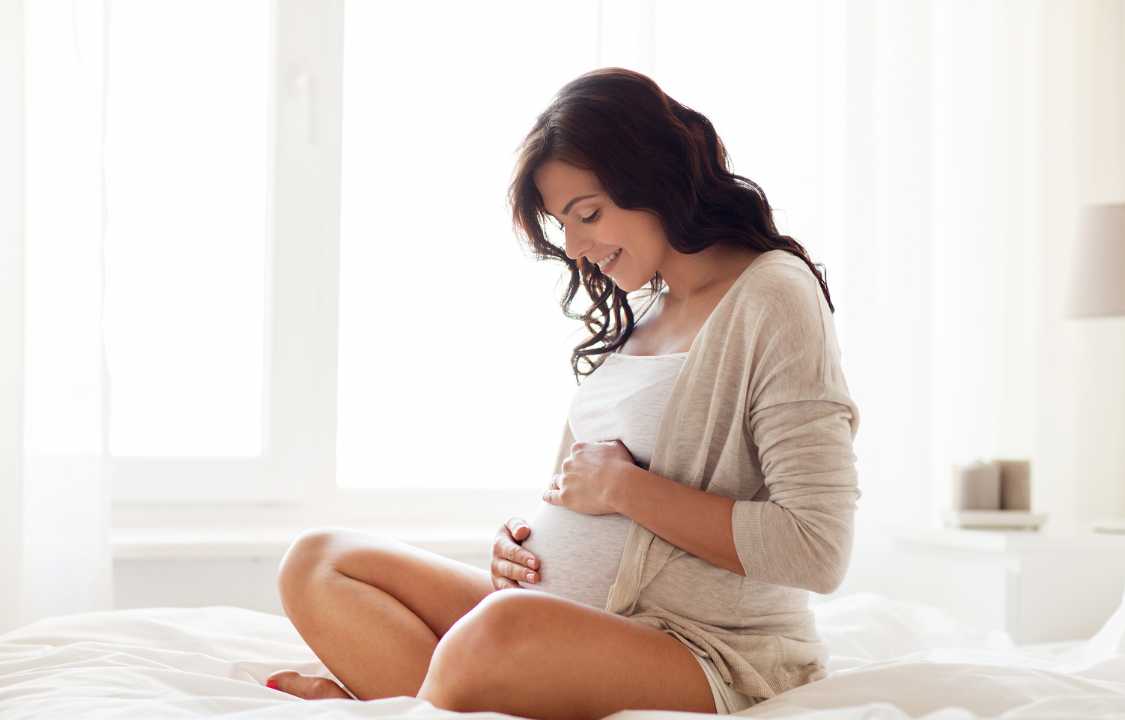Health Care, Menopause, Menstruation
Pregnancy After Menopause: Is It Possible?
Here’s what to know about pregnancy during menopause—and how it may be possible with fertility treatment to become pregnant after menopause.
The topic of pregnancy after menopause has long intrigued and sometimes confounded individuals. We often hear anecdotes of people defying age-related expectations and conceiving in their 40s, 50s, or beyond. While these stories are indeed inspiring, it’s crucial to understand that the likelihood of pregnancy decreases as a person ages, and the prospect of natural conception after menopause is nonexistent. However, advancements in fertility treatments have expanded the possibilities for parenthood for those who have experienced menopause. In this comprehensive guide, we’ll explore the stages of menopause, the potential for pregnancy during these stages, and the associated risks.
Stages of Menopause: A Gradual Transition
The journey through menopause is characterized by three distinct stages: perimenopause, menopause, and postmenopause.
Perimenopause: The Onset of Change
Perimenopause, also referred to as the menopausal transition, typically begins during a person’s 30s or 40s and extends for five years or longer. During this stage, individuals often observe alterations in their menstrual cycle, including lighter bleeding or irregular periods. These changes are accompanied by significant hormonal fluctuations, particularly in estrogen and progesterone levels. The onset of perimenopause can bring forth a multitude of symptoms, including brain fog, excessive sweating (especially at night), headaches, hot flashes, insomnia, mood swings, and urinary tract infections. It’s a transformative period characterized by shifts in physical and emotional well-being.
Menopause: The Change of Life
Menopause is a natural facet of the aging process, marking the point when someone has not had a menstrual period for a continuous 12-month period. While most women reach menopause between the ages of 45 and 55, variations exist, with some individuals experiencing it earlier or later. Menopause signals the conclusion of fertility, and with it, the cessation of menstruation.
Postmenopause: Embracing a New Phase
Postmenopause designates the stage in an individual’s life following menopause when menstrual periods have permanently ceased. This phase can commence around the age of 51, though variations are common. Postmenopause often brings about noticeable changes in various aspects of life, including shifts in weight, body composition, energy levels, mood, and overall health. It is also associated with potential long-term complications such as abnormal vaginal bleeding, bone loss, osteoporosis, high blood pressure, high cholesterol, and an elevated risk of heart disease and stroke. These challenges often arise from reduced estrogen levels, although some are linked to the natural aging process.
Pregnancy During Perimenopause: A Diminishing Prospect
While the occurrence of unplanned pregnancies during perimenopause is rare, it is not impossible. The gradual decline in fertility that begins around age 30 experiences another dip in the late 30s, with a significant and rapid decline in the late 40s. By the time symptoms of perimenopause, such as irregular periods and hormonal changes, become noticeable, the ovarian reserve has typically diminished significantly. The combination of reduced fertility-related hormones, irregular menstrual cycles, and decreased libido can pose challenges to conception during perimenopause.
Pregnancy During Menopause: A Natural Impossibility
During the menopausal stage, achieving natural pregnancy becomes unfeasible as menstrual periods cease entirely. For individuals who wish to conceive and are experiencing menopausal symptoms, consultation with a healthcare provider is advisable. Fertility testing can provide insights into the potential for pregnancy in the upcoming years by assessing hormone levels, including anti-Mullerian hormone (AMH) and follicle-stimulating hormone (FSH).
Pregnancy During Postmenopause: The Role of Assisted Reproductive Technology (ART)
Typically, natural pregnancies do not occur after menopause due to the absence of ovulation. However, advances in assisted reproductive technology (ART) have expanded the realm of possibilities for pregnancy during postmenopause.
In Vitro Fertilization (IVF) After Menopause: A Promising Avenue
IVF, a prominent form of ART, offers a potential route to pregnancy during postmenopause. This method involves the fusion of an egg and sperm within a laboratory setting, with the resulting embryo subsequently implanted into the uterus. For postmenopausal individuals seeking to conceive, donor eggs from a younger donor are often employed in the IVF process. These donor eggs can be combined with either the partner’s sperm or donated sperm. Additionally, individuals who have preserved eggs or embryos in the past can utilize them for IVF treatment, even after experiencing menopause.
Risks Associated with Pregnancy After Menopause
While achieving pregnancy at age 35 or beyond is a possibility, it is accompanied by an increased risk of various complications, including:
1. Cesarean Section (C-section): Older maternal age can heighten the likelihood of requiring a C-section during childbirth.
2. Chromosomal Abnormalities: The risk of having a baby with chromosomal abnormalities, such as Down syndrome, is elevated in pregnancies occurring later in life.
3. Miscarriage: The likelihood of miscarriage is greater in pregnancies among older individuals.
4. Premature Birth: Older maternal age is linked to an increased risk of premature birth, which can have consequences for infant health.
5. Preeclampsia: The occurrence of high blood pressure during pregnancy, known as preeclampsia, is more prevalent in older expectant mothers.
In summary, the potential for pregnancy varies across the stages of menopause. While natural conception becomes increasingly unlikely during perimenopause and is virtually impossible during menopause, assisted reproductive technologies, particularly IVF with donor eggs, offer hope for pregnancy during postmenopause. However, it is essential to consider the associated risks and complexities of pregnancy at an advanced age. Consultation with healthcare providers and fertility specialists is advisable for individuals contemplating pregnancy during or after menopause, regardless of age.

